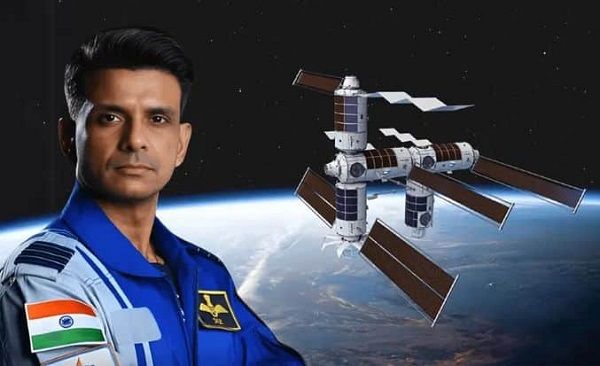
New Delhi . What are the side effects of space travel on human body? This has been replied by Indian astronaut Shubhinaut Shubhanshu Shukla. He said that he had to face many difficulties during the space trip. These included things like swelling on the face, slow heartbeat, back pain and loss of appetite. He said that these are things that are far from the attractive image of space travel. In an event organized by FICCI CLO, Shukla said that life on the International Space Station (ISS) is a difficult test of human stamina, which offers powerful lessons of flexibility, team spirit and perseverance.
Shubhanshu Shukla said that now you can think that space missions are exciting from the beginning. To be honest, there are also. But once you reach the subtle gravity, your body is in the environment with subtle gravity. It rebels because it would never have seen such an environment before, everything changes. Shukla said that blood moves upwards, your head swells, your heart rate slows down, your spine becomes long and you have back pain. Your stomach also floats inside your body and its content too, so you do not feel hungry. All these changes are at the moment when you reach space.
The Indian astronaut recalled a particularly difficult moment when he was having nausea and headache problems just before the talks with Prime Minister Narendra Modi. Shukla said that you cannot even take medicine because nausea medicines puts you in sleep. So you feel bad and still you have to work. He said that in view of the situation, a member of his team quietly set his camera and microphone. Shukla said that this is team spirit, not in words, but in work.
Shukla reported that astronauts have to depend on each other in countless small ways-such as a fan near their face during long experiments in the glove box, or when they are stuck for hours, give them a bottle of water. He said that these small efforts show how important the team spirit is. Shukla said that cooperation is not alternative, it is necessary. You do not go alone in space, you go riding on the shoulders of many people.
According to Shubhanshu Shukla, apart from physical inconvenience, the emotional effect of space travel was also deep. Shukla described looking at the earth and looking at India as a very poignant experience. He said that out of all the places on Earth, India looks most beautiful when seen from above. The beaches and grounds look different… It is really good from all where… In those moments, the connectivity of the house seems very amazing.
Shukla said that the real heritage of space campaigns lies not only in science, but also in representation and inspiration. He said that the children meeting in Lucknow said that they came to know about the International Space Station (ISS) only when he went there. Astronaut and Indian Air Force official said that he told me that we care about you because you were there. That moment had a profound effect on me like gravity. Your presence in boardrooms, laboratories, parliamentes, and even space capsules is not only symbolic, but catalytic.
Shukla also talked about perseverance despite rejection and shared the story of American astronaut Paigi Whitson, who eventually applied to the US space agency NASA 10 times before being selected and set several records. He said that if the world also says ‘no’ nine times, then it can change history by saying ‘yes’ for the tenth time.
Shukla described India’s ambitious Gaganyaan Mission Plan and by 2040 described the presence on the Moon as a milestone that would take the country forward. He said that there is no doubt that this will require more than rockets and spacecraft. This will require the energy of the entire country.